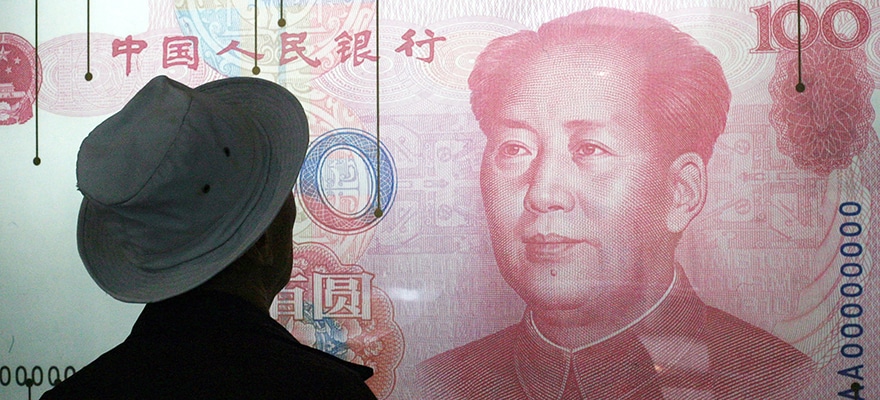SWIFT, a global provider of financial messaging services, has reported that its latest Chinese renminbi (RMB) tracker has revealed a diminishing use, having fallen back to the fifth most utilized currency for international payments.
During September 2015, the RMB fell to fifth place amongst active currencies for international payments – previously the Chinese currency had reached fourth place, an all-time high. However, during September 2015, the RMB accounted for 2.45% of global payments, representing a decrease from 2.79% observed by the tracker in August 2015.
The revelation is tempered by recent data by SWIFT, which shows the underlying growth trajectory for the currency remains steadfast, despite relinquishing its spot in the international payments hierarchy.
Rather, “Last month’s RMB tracker showed a spike in RMB utilization, elevating the currency to the #4 position worldwide. Whether the RMB sits at position #4 or #5, what is important to note is the underlying growth of the currency, which is trending positive. Such a trend is supported by an increasing number of corporates adopting the RMB for trade settlement and a rising number of banks supporting those payments,” noted Michael Moon, Head of Payments, Asia-Pacific (APAC) at SWIFT.
According to Mr. Moon, “Continued improvements in RMB processing through use of international standards and enhancing the services offered by financial institutions will also continue to strengthen the RMB and its role as an international payments currency.”
Overall, global RMB payments decreased in value by 5.57% in September 2015, whilst in general all payments currencies grew by 7.56%.
The announcement comes amidst a critical time for the RMB, . China’s efforts have finally gained momentum in recent weeks however, following a recent report that discussions between the country and IMF will likely decide the currency’s membership next month.
China had previously made several concerted attempts at pushing the RMB’s adoption on the IMF’s benchmark currency basket – a feeling the country has made apparent during several IMF meetings over the past few months. China argued that a plethora of recent reforms had closed the qualification gap needed for outright induction on the currency basket.





Be First to Comment